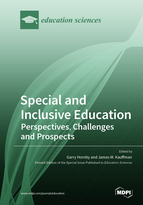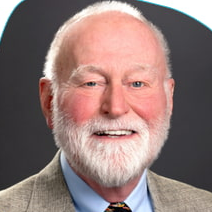Special and Inclusive Education: Perspectives, Challenges and Prospects
A special issue of Education Sciences (ISSN 2227-7102). This special issue belongs to the section "Special and Inclusive Education".
Deadline for manuscript submissions: closed (15 March 2021) | Viewed by 116360
Special Issue Editors
Interests: inclusive and special education; parental involvement in education; evidence-based practice; teacher education for special needs; educational psychology; bullying
Special Issues, Collections and Topics in MDPI journals
Interests: special education for emotional and behavioral disorders; history of special education; special education policy
Special Issues, Collections and Topics in MDPI journals
Special Issue Information
Dear Colleagues,
For the past 50 years, there has been increasing consideration and debate about how to best educate learners with special educational needs and disabilities. Competing paradigms of special education and inclusive education have been developed, disseminated and discussed at length over the years. These discussions have focused the attention on effectively educating learners with different types and severities of special educational needs and disabilities, who are living in either developing and developed countries in various parts of the world.
The aim of this Special Issue of Education Sciences is to focus on the latest theory, practice and research relevant to special education and inclusive education. Articles that present new ideas, suggest future research directions or potential ways forward for educational practice are of particular interest.
Articles are sought that present differing perspectives on the issues, examine challenges to implementing effective practice, and consider future prospects for developing theories or conducting research. Of particular interest are articles that focus on the development of models of effective practice in special education or inclusive education, or combinations of the two, that are suitable for implementation in the different education systems that exist in various countries throughout the world.
Therefore, articles based on reviews of the recent and relevant literature or on novel practices are welcomed, as well as those based on research conducted using a range of methodologies, or of differing theoretical perspectives. In this way, it is intended that this Special Issue will help to enable a community of scholars, policymakers and practitioners to consider the latest thinking on this issue.
Prof. Dr. Garry Hornby
Prof. Dr. James M. Kauffman
Guest Editors
Manuscript Submission Information
Manuscripts should be submitted online at www.mdpi.com by registering and logging in to this website. Once you are registered, click here to go to the submission form. Manuscripts can be submitted until the deadline. All submissions that pass pre-check are peer-reviewed. Accepted papers will be published continuously in the journal (as soon as accepted) and will be listed together on the special issue website. Research articles, review articles as well as short communications are invited. For planned papers, a title and short abstract (about 100 words) can be sent to the Editorial Office for announcement on this website.
Submitted manuscripts should not have been published previously, nor be under consideration for publication elsewhere (except conference proceedings papers). All manuscripts are thoroughly refereed through a double-blind peer-review process. A guide for authors and other relevant information for submission of manuscripts is available on the Instructions for Authors page. Education Sciences is an international peer-reviewed open access monthly journal published by MDPI.
Please visit the Instructions for Authors page before submitting a manuscript. The Article Processing Charge (APC) for publication in this open access journal is 1800 CHF (Swiss Francs). Submitted papers should be well formatted and use good English. Authors may use MDPI's English editing service prior to publication or during author revisions.
Keywords
- special educational needs
- disabilities
- special education
- inclusive education







